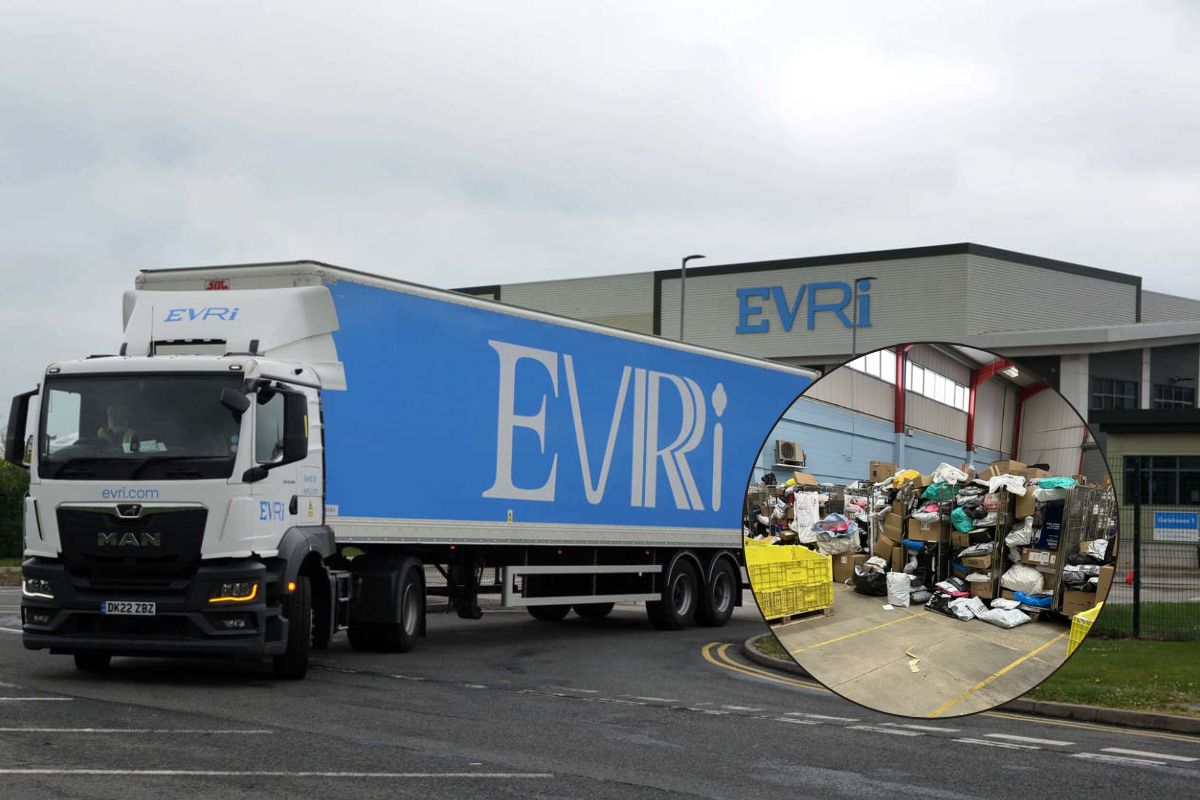Evri has given their courier schemes a fresh lick of paint, rebranding their old “Lifestyle Courier” and “SE+ Courier” categories to the snappier “Evri Flex” and “Evri Plus” respectively.
And if those names sound familiar, that’s because they’ve essentially nicked Amazon’s “Flex” branding – because nothing says innovation quite like copying your competitors.
But beyond the glossy new names, what’s actually changed? And more importantly, if you’re considering becoming an Evri courier, which option might actually put some decent money in your pocket without completely destroying your work-life balance?
Let’s dive into the nitty-gritty of what it’s really like to work for Britain’s most complained-about courier company.
The Rebranding: Same Job, Shinier Name
The rebrand comes hot on the heels of Evri’s “ground-breaking courier pay deal” with the GMB Union, which promised better terms for couriers. Whether this actually translates to better conditions in practice remains to be seen, but at least the marketing department has been busy.
The timing is particularly interesting given that Evri has been trying to hire 5000 new couriers following their DHL deal – though as we’ve covered, most of these positions are the casual “Flex” variety rather than the more stable Plus roles.
Evri Flex: The Gig Economy Reality Check
Evri Flex is essentially Evri’s answer to the gig economy – you pick up shifts when you fancy it, using an app to grab available delivery rounds as they become available.
Sounds flexible and modern, doesn’t it?
Here’s the reality: Flex couriers get different routes every single day, which means you’re constantly learning new addresses, figuring out where safe places are, and trying to navigate unfamiliar areas.
Unlike traditional postal workers who get to know their rounds inside and out, Flex drivers are perpetually starting from scratch for every shift.
These shifts are usually the rounds no one wants (Evri Plus couriers aren’t touching them for a reason) or holiday cover.
The Flex Experience: Why It’s Often a Struggle
The constantly changing routes make it incredibly difficult to build up the speed and efficiency needed to earn decent money.
While experienced couriers with regular rounds can smash through deliveries because they know every shortcut and safe drop location, Flex drivers are stuck checking maps and hunting for house numbers.
This translates to brutal earning potential – some Flex couriers report making as little as £4-£5 per hour after factoring in fuel, vehicle wear, and taxes. With no guaranteed work and minimal training, it’s no wonder the turnover rate is sky-high.
The lack of familiarity with routes also explains why Evri has such a patchy reputation.
When you’ve got constantly rotating drivers who don’t know the area, it’s hardly surprising that parcels end up in hedge deliveries or “safe places” that aren’t particularly safe.
Evri Plus: The Proper Job (With Strings Attached)
Evri Plus is where the real money potentially lies – but it comes with serious commitments that won’t suit everyone.
Plus couriers get dedicated rounds, which means the same delivery areas every day.
Once you’ve learned your patch inside out, you can become incredibly efficient.
Experienced Plus couriers often report completing their rounds in 3-5 hours, and with smaller rounds, some manage it in even less time.
The Plus Package: What You Actually Get
The Plus scheme comes with benefits that look impressive on paper:
- Holiday pay (28 days annually)
- Pension contributions
- Dedicated delivery round(s)
- Guaranteed minimum earnings
- Sunday premium pay (£1 per parcel guaranteed)(this is also on offer to Flex couriers)
For couriers who can handle the commitment and get up to speed, the earning potential is significantly better than Flex.
Some report making £150+ a day for what amounts to part-time hours once they’re experienced.
The Catch: Six Days a Week, Every Week
Here’s where Evri Plus becomes less attractive for many potential couriers – you’re expected to work at least six days per week, with most couriers also working Sundays for that premium rate.
While the daily time commitment might only be 3-5 hours once you’re efficient, working every weekend isn’t feasible for people with families or other commitments.
Worse, those 28 days of holiday suddenly look rather stingy when you’re working a 52-week, seven-day schedule.
The commitment requirement also means that Plus positions aren’t always immediately available – Evri needs to know you’re reliable before they’ll trust you with a dedicated round.

The Path from Flex to Plus: Proving Your Worth
Most new Evri couriers can’t jump straight into a Plus role.
Instead, you’ll likely need to cut your teeth on Flex shifts, proving you can handle the work and showing up consistently before being offered a dedicated round.
This means enduring the frustration of constantly changing routes and potentially poor earnings while you demonstrate your reliability.
It’s essentially an unpaid trial period where you’re earning buttons while Evri decides whether to offer you proper work.
Given that Evri’s delivery times can be notoriously unpredictable, you would have thought that having experienced, consistent couriers on dedicated rounds would certainly help their reputation.
The problem is they rarely retain people long enough to get there.
Is Either Option Worth It?
For people with no other commitments who can handle working every weekend, Evri Plus can potentially offer very decent earnings for part-time hours.
The key word here is “potentially” – you need to get through the Flex apprenticeship first, then build up speed on your dedicated round.
Evri Flex, meanwhile, offers the kind of “flexibility” that usually means flexible for the company rather than the worker.
Unless you’re desperate for any income or treating it as a very part-time side hustle, the earning potential rarely justifies the vehicle costs and time investment.
The Bottom Line: New Names, Same Challenges
Despite the shiny rebrand and partnership with the GMB Union, the fundamental challenges of working for Evri remain largely unchanged.
The company still relies heavily on casual labour for its Flex scheme, while the Plus option demands a level of commitment that rules out anyone with weekend plans or family responsibilities.
It’s perhaps fitting that a company that rebranded from Hermes to Evri without solving its underlying service issues has now rebranded its courier schemes without addressing the core problems that make them unattractive to many potential workers.
Whether you call them Lifestyle and SE+, or Flex and Plus, the reality remains the same: there might be money to be made if you can handle the commitment and get through the initial slog, but it’s not the flexible, lucrative opportunity the marketing suggests.




